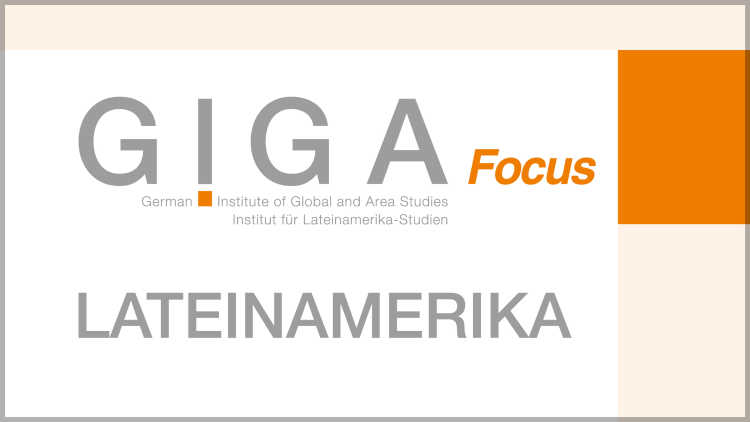- Home
- Publications
- GIGA Focus
- Bolivien: Politische Neugründung in der Sackgasse
GIGA Focus Latin America
Bolivien: Politische Neugründung in der Sackgasse
Number 7 | 2008 | ISSN: 1862-3573
Die Regierung Morales ist mit ihrem Projekt der refundación, einer Neugründung des politischen Systems Boliviens auf massiven Widerstand gestoßen. Das Land befindet sich in einer politischen Pattsituation.
Analyse Ziel der seit 2006 amtierenden Regierung ist die „Neugründung“ des Landes vor allem mittels einer neuen Verfassung. Der Verfassungsprozess sowie der Ende 2007 verabschiedete Verfassungsentwurf, mit dem die Regierungspartei Movimiento al Socialismo (Bewegung zum Sozialismus – MAS) ihr Hegemonieprojekt gegen alle Widerstände durchsetzen will, hat zum Entstehen einer starken Oppositionsbewegung geführt. Angesichts der Schwäche der parteipolitischen Opposition wird der Widerstand gegen die Regierung derzeit im Wesentlichen von einigen Departements getragen und richtet sich inhaltlich vor allem auf den Kampf um mehr regionale Autonomie.
Die Regierung Morales hat sich trotz ihres spektakulären Wahlerfolges 2005 zu der wohl schwächsten Regierung in der demokratischen Geschichte Boliviens entwickelt. Dies ist im Wesentlichen auf strategische Fehler im Zusammenhang mit der Autonomiepolitik und dem Verfassungsprozess zurückzuführen.
Boliviens Demokratie ist nicht mehr durch einen Pakt seiner Eliten sondern zunehmend durch antagonistische Positionen gekennzeichnet. Dies lähmt und gefährdet die Demokratie empfindlich.
Morales befindet sich zwischen selbst geschaffenen Fronten. Ein realistischer Ausweg aus dem verfestigten politisch-strategischen Patt ist nicht erkennbar. Auch ein Referendum zur Abberufung der Regierung im August wird diese Krise nicht beenden.
Die Regierung Morales hat die historische Chance eines Neuanfangs vertan und Bolivien vielmehr eine neue, konfliktbeladene Transitionsphase aufgebürdet.
Footnotes
How to cite this article
Jost, Stefan (2008), Bolivien: Politische Neugründung in der Sackgasse, GIGA Focus Latin America, 7, Hamburg: German Institute for Global and Area Studies (GIGA), http://nbn-resolving.de/urn:nbn:de:0168-ssoar-275347
Imprint
The GIGA Focus is an Open Access publication and can be read on the Internet and downloaded free of charge at www.giga-hamburg.de/en/publications/giga-focus. According to the conditions of the Creative-Commons license Attribution-No Derivative Works 3.0, this publication may be freely duplicated, circulated, and made accessible to the public. The particular conditions include the correct indication of the initial publication as GIGA Focus and no changes in or abbreviation of texts.
The German Institute for Global and Area Studies (GIGA) – Leibniz-Institut für Globale und Regionale Studien in Hamburg publishes the Focus series on Africa, Asia, Latin America, the Middle East and global issues. The GIGA Focus is edited and published by the GIGA. The views and opinions expressed are solely those of the authors and do not necessarily reflect those of the institute. Authors alone are responsible for the content of their articles. GIGA and the authors cannot be held liable for any errors and omissions, or for any consequences arising from the use of the information provided.



